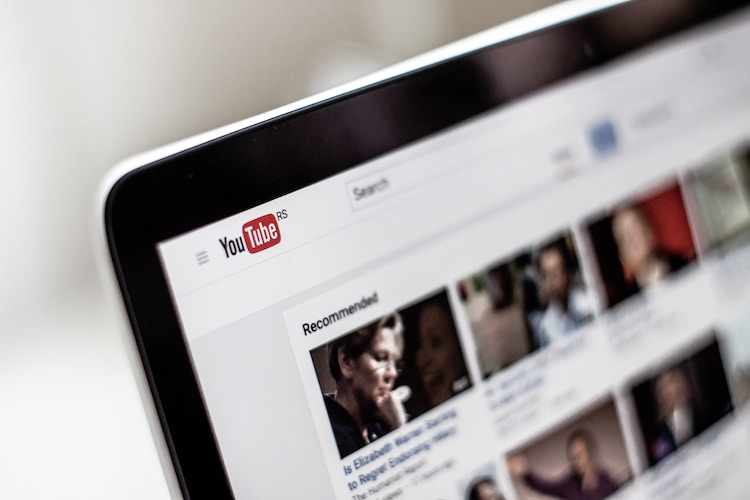
Ever wondered if trolling is illegal in the UK? Join the club!
Way back in the history of this blog, I wrote a post about how bloggers should expect to be trolled. I wrote: “If you express anything other than the most vanilla of opinions online, someone, somewhere will disagree with you”.
It’s 2020, and that statement is truer than ever.
An enterprising generation of women who hit the Internet at the perfect moment have translated their family life into online reality TV shows and marketing channels on social media, selling everything from clothes to toys and holidays.
It’s a great success story, in some ways. It’s amazing to see smart, creative women (mostly) thriving in a new job that offers great flexibility and high earning potential.
The flip side is that hardly a week goes by without an influencer posting an emotional account of their experience of Internet trolls. Casual observers who gleefully dissect each new episode and plot twist.
Is trolling gross and a bit sad?
Definitely.
It trolling illegal?
No. Except sometimes, yes.
Hello to the Hate Watchers!
I like to think of trolls as Hate Watchers. They’re the people who watch and engage with content knowing before they start that they’re probably not going to like what they see.
Hate watchers think it’s weird if you breastfeed. Or if you don’t. They’ll say you’re too reckless with your kids. Or too protective. You bought that plastic toy? Do you even love your baby? Ugh.
In some cases, these viewers are former “fans” who no longer like your content, for whatever reason. Sometimes they’re people who are morally opposed to parents sharing images of children online. They might disapprove of fast fashion. They might be the sort of people who love to chat about reality TV and showbiz gossip and see chatting about an InstaMum to be exactly the same thing. And of course, in some cases, these people are dicks.
Personally, I think it takes a certain mentality to create an anonymous profile online and repeatedly pull apart another person, whether they’re on a major television show, or a YouTube channel.
These comments can be hurtful. Devastating, often. I’ve seen influencers experience genuine mental health crises as a result of the comments made about them online.
But is Trolling Illegal?
Mostly, trolling is not illegal in the UK today.
In this country, free speech is considered a fundamental human right. If I genuinely hold an opinion then, with very few exceptions, I’m at liberty to express it.
Most of the people influencers consider trolls say that’s just what they’re doing. Expressing a perfectly legitimate, if unkind, opinion. And they’re right.
The “trolls” laugh when they’re called bullies or sad or mentally ill because they’re just speaking the truth, as they see it. Influencers are seen as fair game. They will quite rightly say that influencers make an active choice to share personal content on a public platform. And then they seek out the widest possible audience and invite them to comment on that content, so that it can be commercialised (in many cases).
From that perspective, it’s exactly the same as when I watch KUWTK and I have ALL THE OPINIONS about Kim’s bathroom. (What? Nobody needs concrete in a bathroom).
So yes, it’s perfectly legal for someone to post online that someone is unattractive, or fake, or annoying, or stupid. They can post those things freely, and they might not be being great people, but they’re certainly not breaking the law.
Can Trolling be Illegal in the UK?
The good news is this isn’t the Wild West. Influencers do have some protection from the most extreme forms of trolling.
For example, the UK has robust libel laws. If someone says something false about you online, and it damages your reputation and causes harm in a way you can prove, then you could well have a case for libel. So if someone posts that you are a demon worshipper who eats frogs, and you subsequently don’t get that sponsored post from a frog sanctuary, that would be provable damage. The key requirement for libel is that:
- What the person said is not true
- What the person said was presented as fact, and not just a comment or opinion
- The comment has caused harm to your reputation
- You have suffered demonstrable harm as a result
Check out my guide to libel if you want to know more.
There are a bunch of other laws that can make trolling illegal, including laws about harassment, stalking, malicious communications and more.
In 2016, the CPS published a set of guidelines to various online offences, to help police and prosecutors use existing laws to prosecute some trolls.
The guidelines are pretty long, but the gist is that there are several troll offences that can be prosecuted under existing laws, including:
- Communications that include threats of violence to a person, or their property
- Communications that constitute or incite harassment or stalking
- Disclosing private sexual images without content
- Blackmail
- Communications that don’t fall into any of these categories, but which are considered to be grossly offensive, indecent, obscene or false.


When is a Troll Breaking the Law?
As mentioned, the UK takes free speech seriously, so the bar to proving trolls are breaking the law is very high indeed.
- Grossly Offensive
For example, to be grossly offensive, the CPS says that a message cannot simply be “offensive, shocking, rude, unpopular, unfashionable, made in haste or simply ill-thought out”. It must be “well beyond the pale of what is tolerable in an open and just multi-racial society”.
If you want an inkling of how bad something can be without being “grossly” offensive, check out this case.An MP received a series of voicemails over a period of months from a man complaining about immigration. Despite using the type of language I’m not even prepared to type, the guy was found not guilty, because his conduct was only “offensive” rather than “grossly offensive”. Grossly offensive content needs to be pretty appalling.
- Threatening Content
For content to be threatening, there needs to be evidence that the person sending a message intended to cause fear or anxiety. Again, that’s a pretty high bar.
Where this guidance is likely to be most useful is doxxing. If someone shares personal information about you, like an address, with a reasonable expectation that having the information online will cause you fear or anxiety, then that’s an offence. Note, this defence will not apply if the information that is shared is already publicly available. So it’s important for influencers to take sensible precautions to protect personal information to begin with. Basically, never, EVER share someone’s personal details online without their consent.
- Incitement
Related to the above, if a troll is actively encouraging a large number of people to share what would be considered to be grossly offensive, libellous or threatening content, that’s an offence. Creating negative hashtags and whipping up a crowd by doxxing and saying, “Let’s show her what we think!” would be an example of this. This doesn’t just apply to trolls – influencers with large followings have been known to doxx trolls, potentially committing their own offence if an army of followers is let loose.


Top Tips for Handling Trolls
I don’t profess to be an expert in any of this stuff. I’m not a troll. I’m not really an influencer, either.
But I do have friends who are making themselves ill with the stress of trying to win an un-winnable war with trolls. I also have friends who “troll” because they post on message boards what they consider to be valid opinions about transparency and whether it’s okay to monetise kids on social media.
With that in mind here are my five top tips for resolving the Influencer/Troll issue :
1. Don’t Feed the Trolls: Every expert I’ve spoken to in ten years of blogging, and 15 years of tech journalism before that, agrees on one thing: do not respond to trolls. Do not argue with trolls. Do not pass agg post about trolls.
Any genuine troll or hate-watcher won’t agree that they’re doing something terrible. They’ll just see confirmation of what an attention-seeker you are, jumping on the troll “bandwagon” for the likes. Although if you ARE doing that, fair play, because it’s a pretty perfect example of making lemonade when life gives you small, bitter lemons.
2. Use Platform Tools: All the social media platforms are struggling to balance free speech with removing hate. So none of them are especially proactive – meaning it’s down to YOU to filter YOUR online experience. Use word filters, block and report, filter hashtags, turn on comment moderation, make your profiles private, avoid sharing personally identifiable content, and if you’ve done this in the past, remove that content. STOP READING FORUMS DEVOTED TO SLATING INFLUENCERS.
My motto with online nastiness has always been: “didn’t see it, didn’t happen, don’t care”.
3. Be Open to Debate: I would love to see more influencers engage with audience feedback.
I do understand it’s probably scary to be opening the door to trolls, but this isn’t about feeding trolls. It’s about listening to constructive, honest comments from audience members who have specific, reasoned concerns or objections. Before they become trolls. Even having a periodic Q&A on your channel or inviting people to email feedback to a specific address, will reassure audience members that you’re open to their concerns and prepared to consider changes if it makes sense to do so.
4. Keep Evidence: So let’s say you have a really serious troll, and you’ve checked the guidance and you’re pretty confident you have a case to bring. You are 100% going to need evidence. So you need to keep records of URLs, screen shots of profiles (I’d suggest not reporting a profile if you’re planning on taking action, as once the profile has been removed, you might find your evidence disappears with it).
5. Ultimate Solution: Honestly, if trolls aren’t something you can tolerate, make your page private. Make your videos unlisted. You’re not trapped. You don’t HAVE to share content with a public audience. Some people simply aren’t made to cope with the unpleasant things that come with putting your life in front of an audience and inviting them to comment. There’s no weakness in that, I don’t think.
That said, I think those people need to make a judgement – is the money, the job satisfaction, the positive feedback, more important than the trolling? If not, click that “make private” button and move on. Those skills you have will be a valuable asset in helping some other company or brand build up their own online content and audience. No job is worth sacrificing the happiness and wellbeing of you OR your family.









Great article, Sally! You know what? This content is timely especially with the rise of social media. In this time and age, as social media platforms create millions of connections, it can either make or break a person. One of the most rampant cases of misbehaviour online is trolling. Yet, not everyone has the idea of what they need to do when they experience trolling. Keeping evidence is an excellent idea whenever someone decides to sue those trolls especially when they have morally damaged someone. Trolling should stop, though.